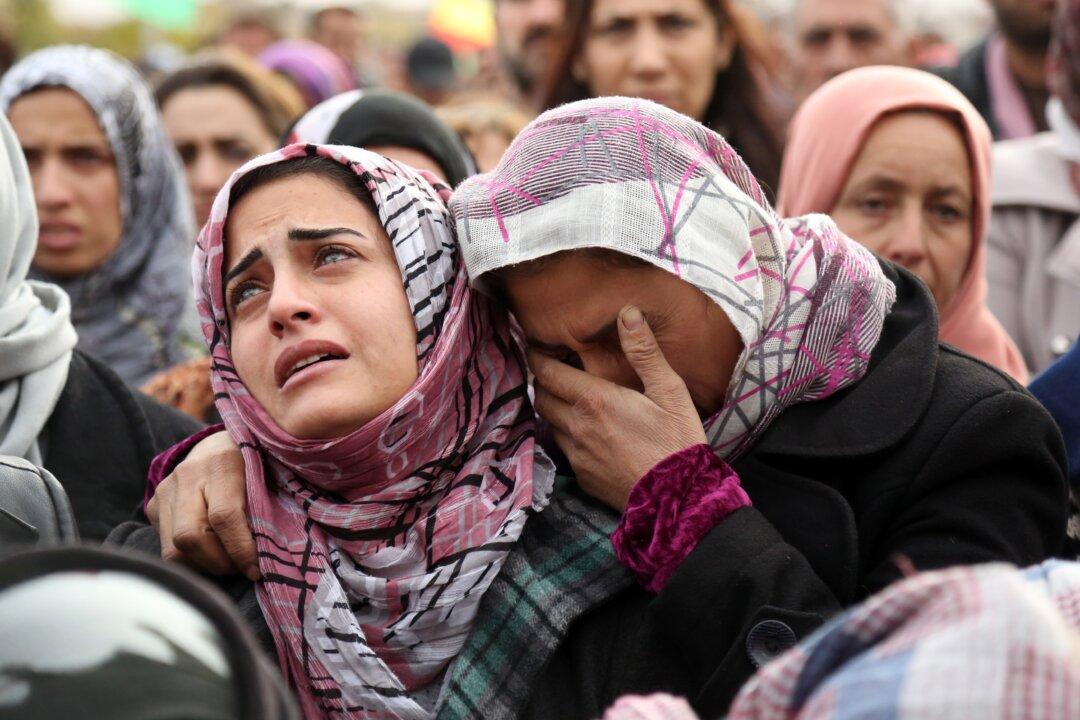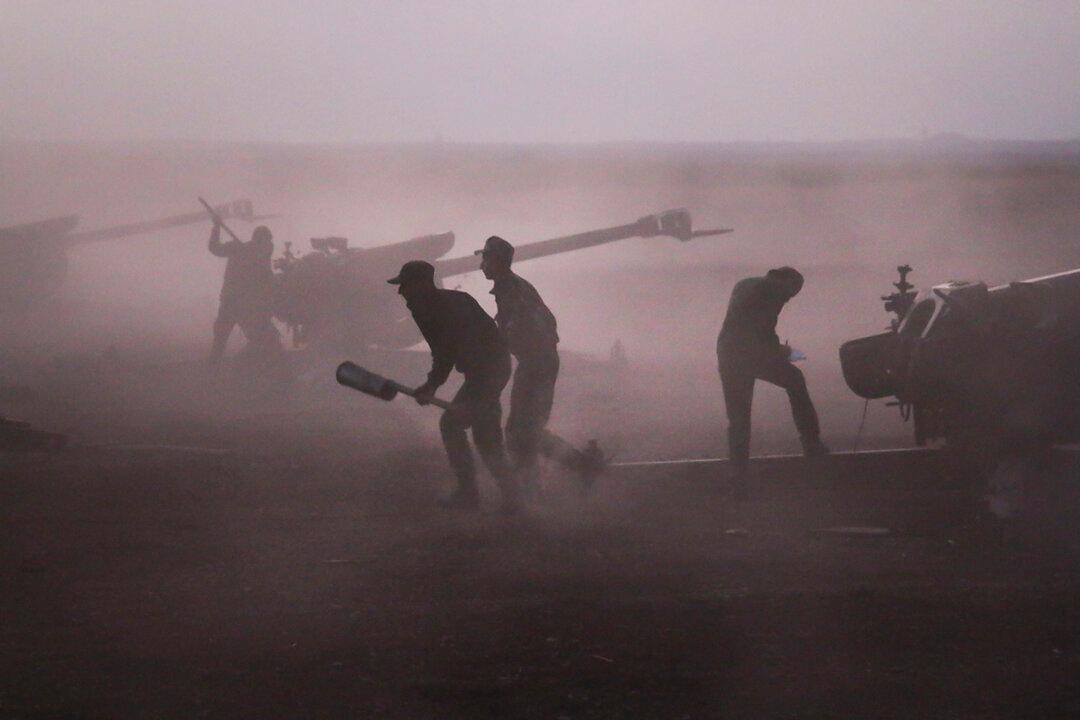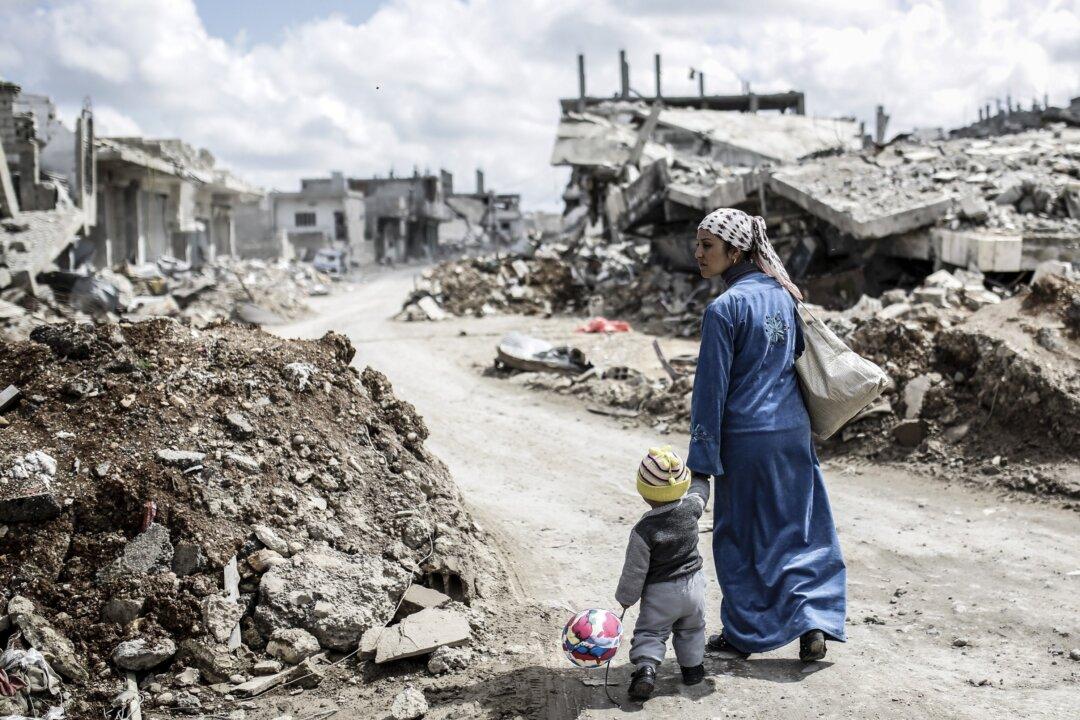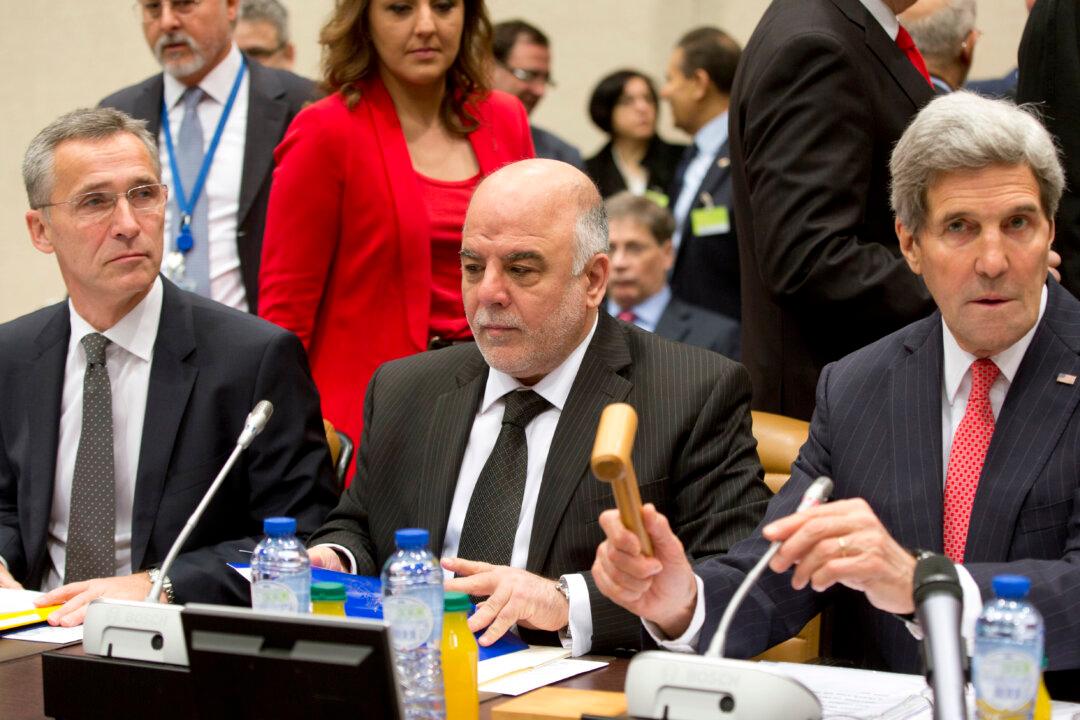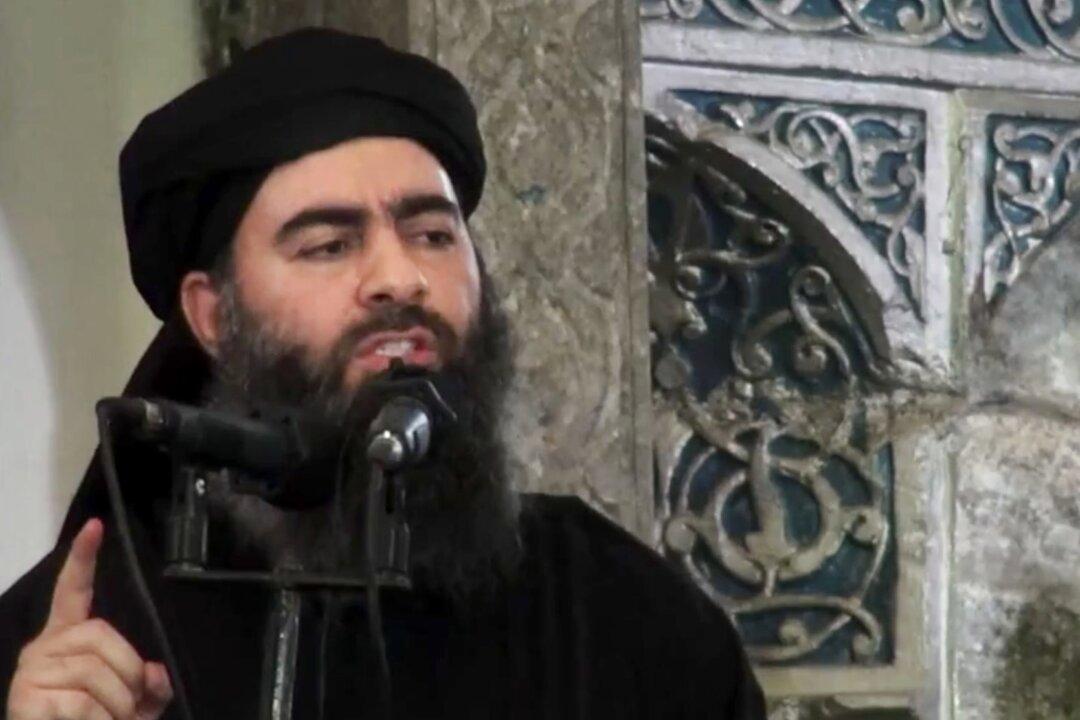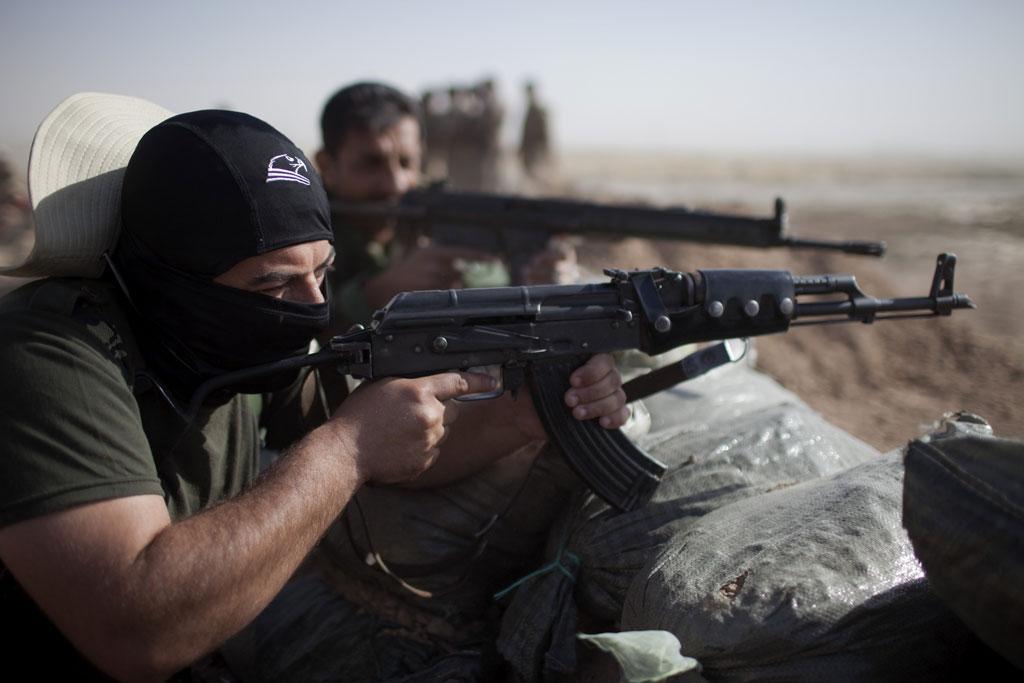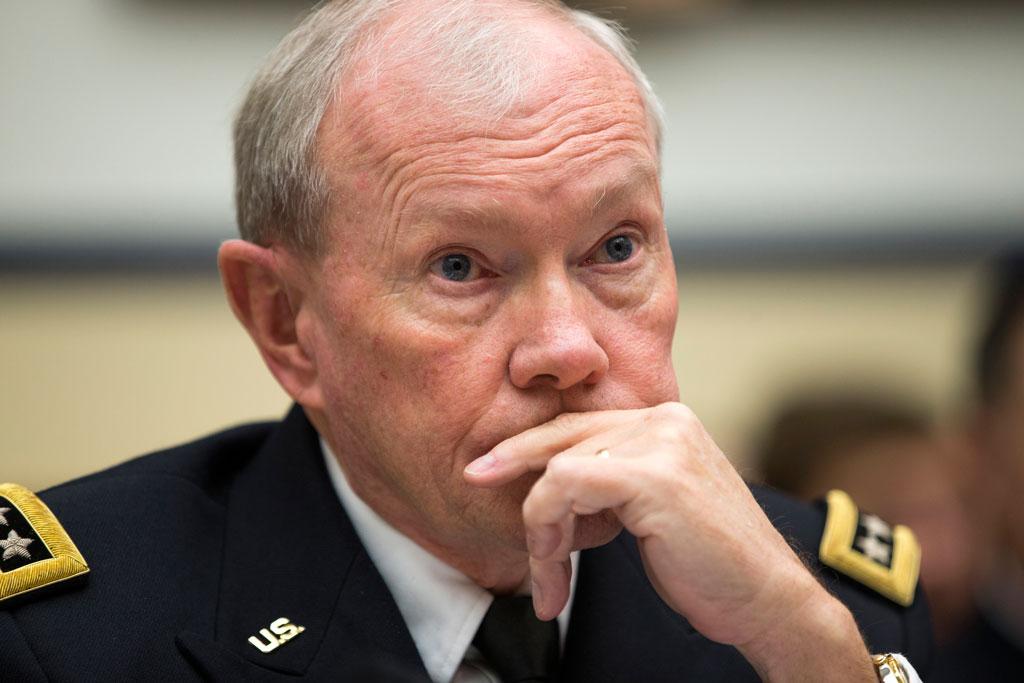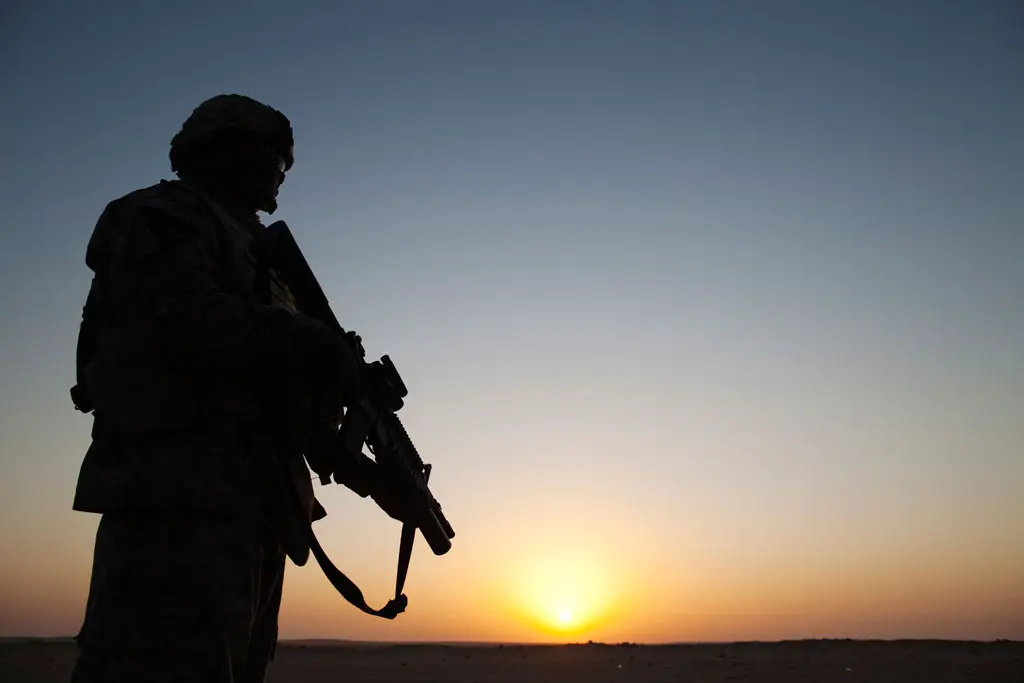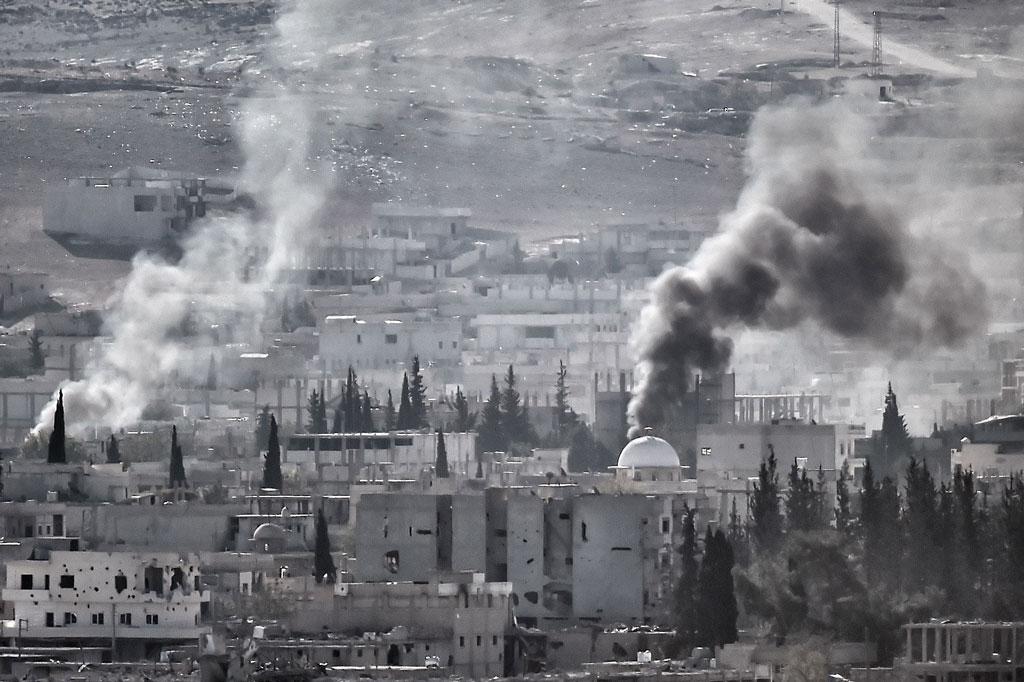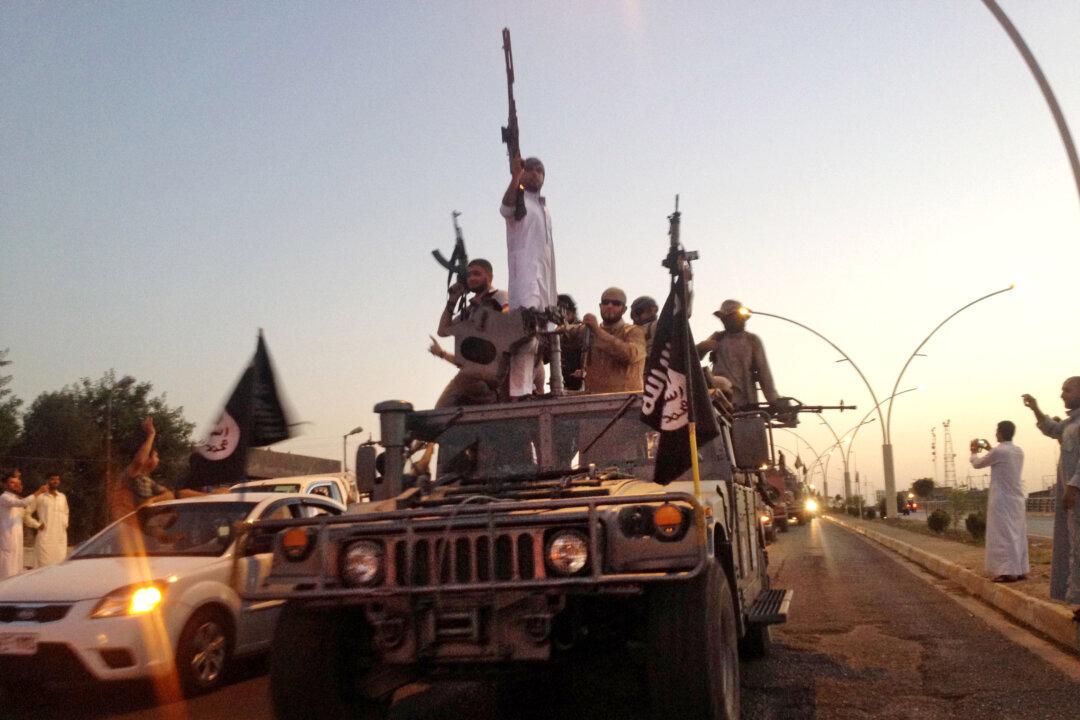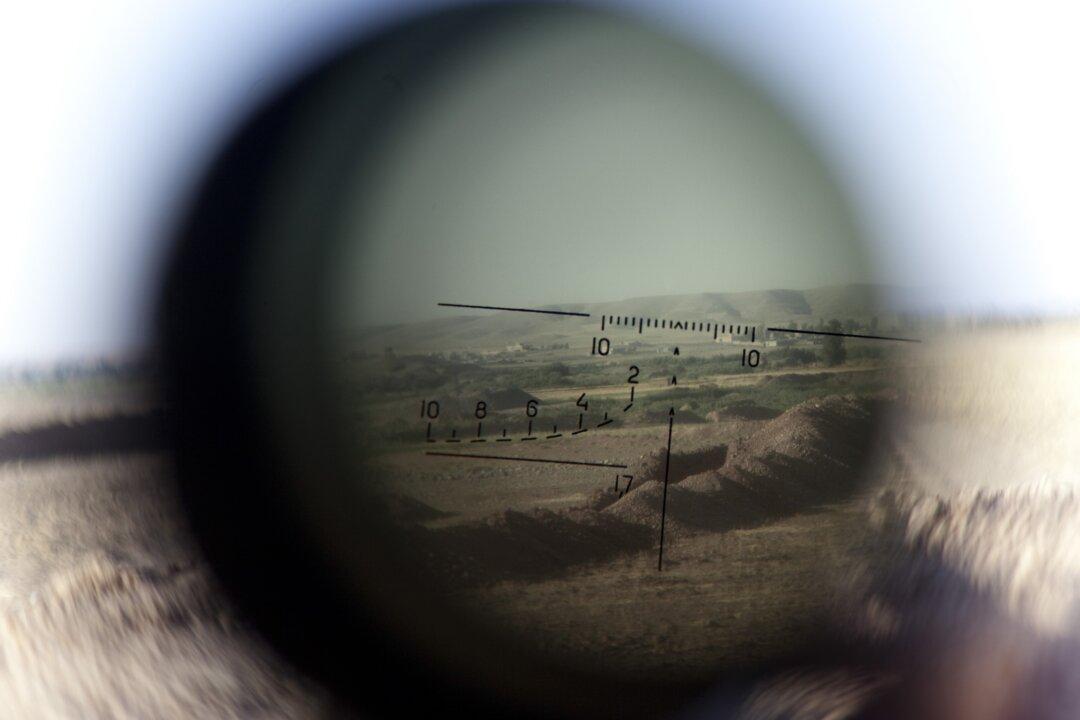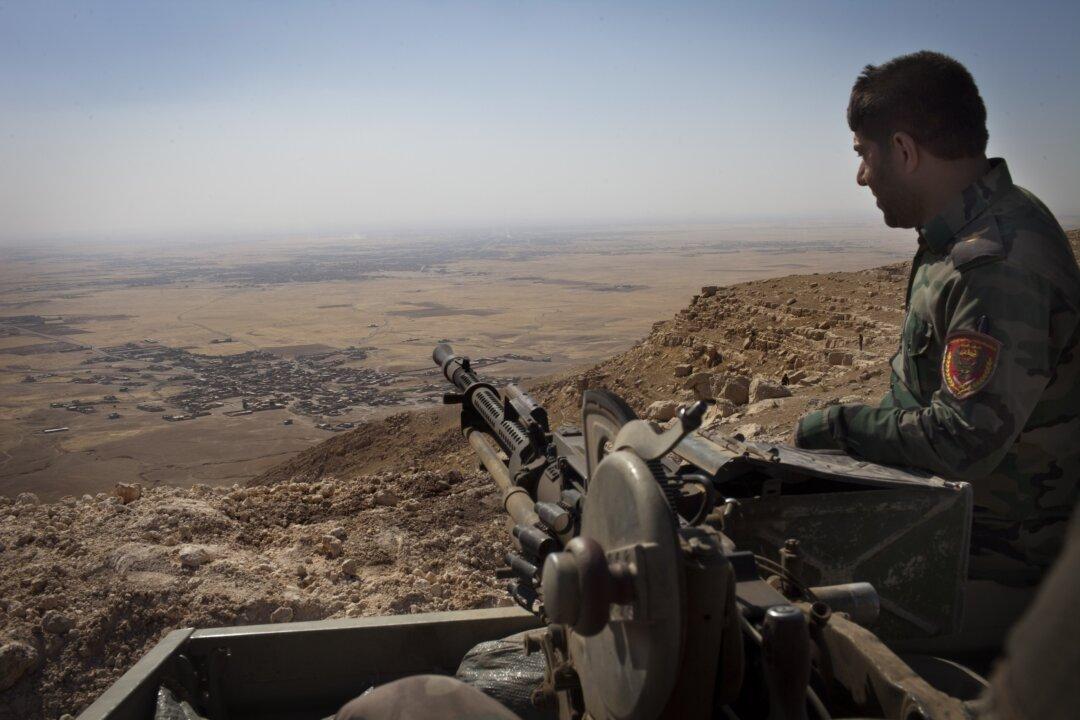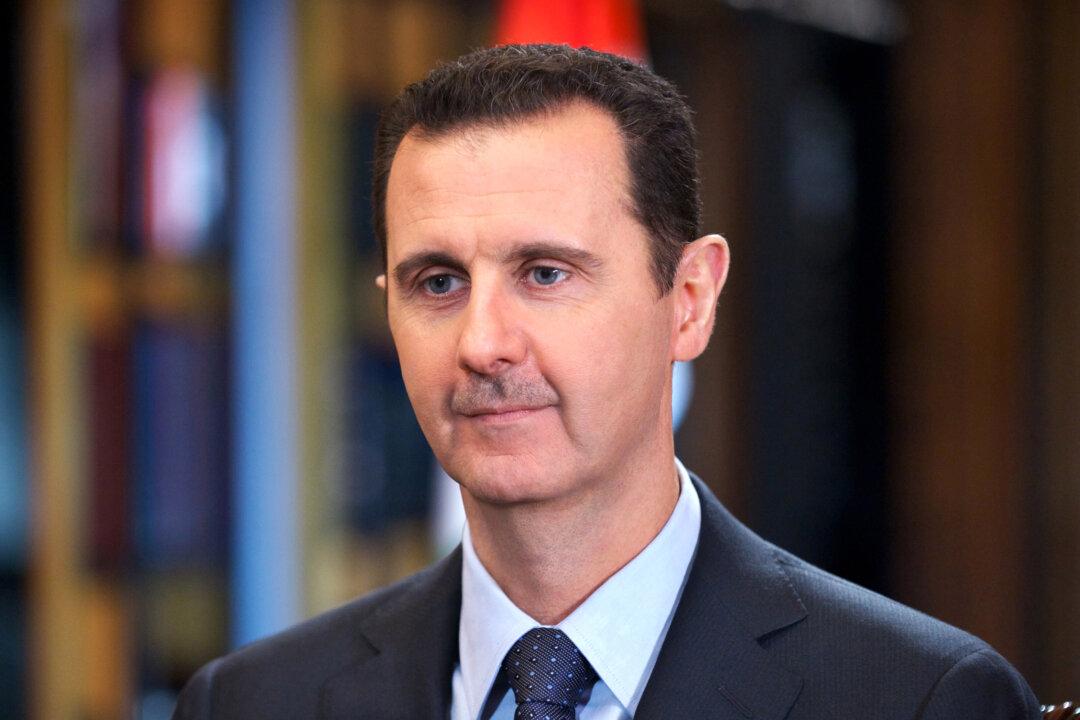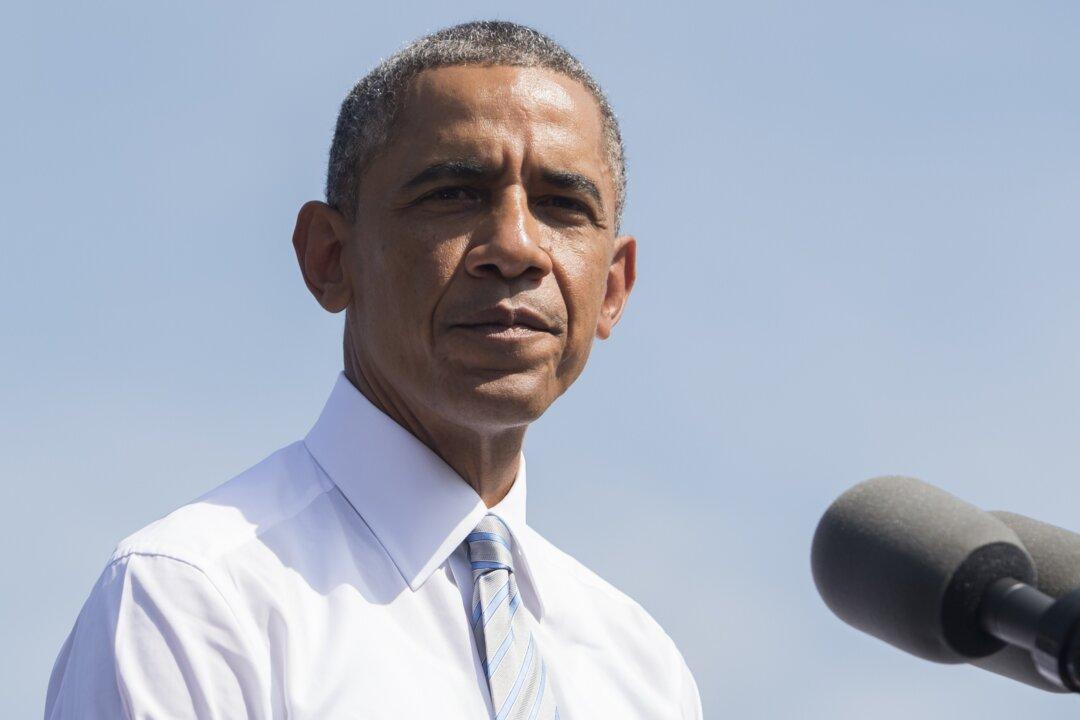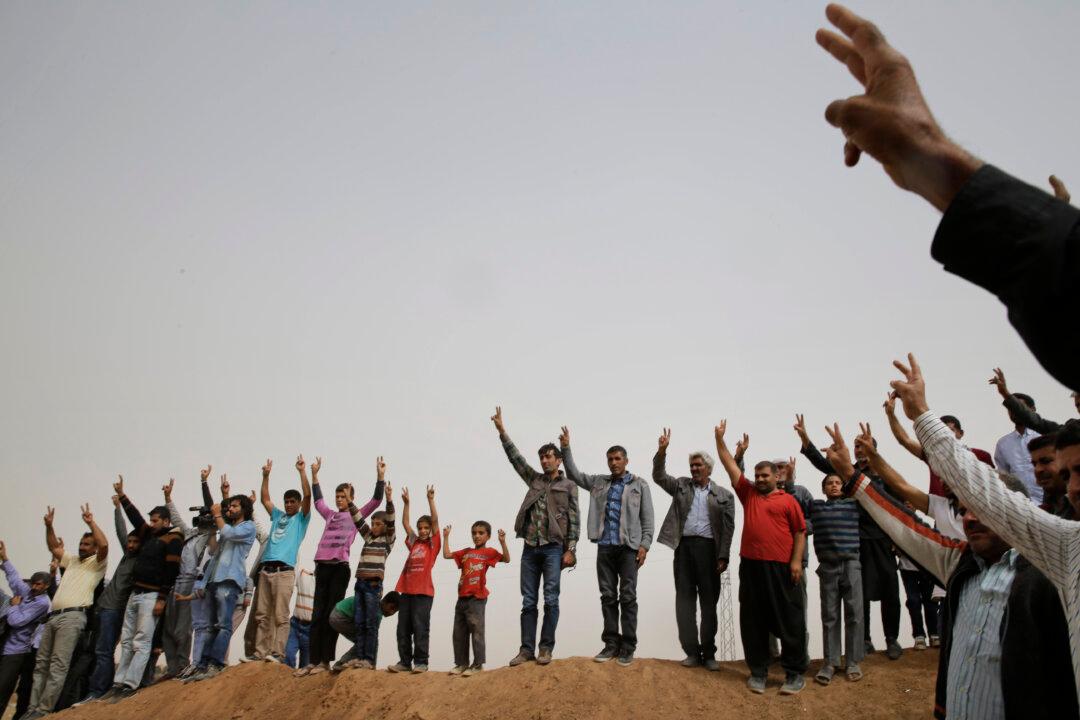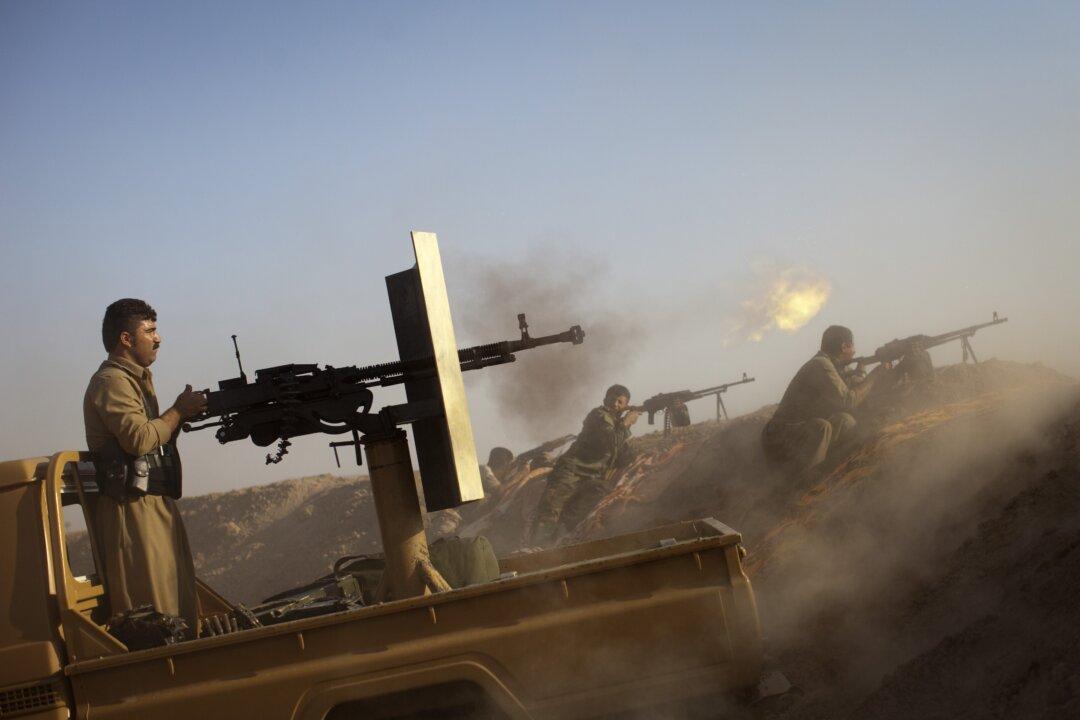Focus
Jabhat al-Nusra
LATEST
Could an End to Syria’s Civil War Be in Sight?
If, as cliché has it, the definition of insanity is doing the same thing over and over and expecting different results, isn’t the recent flurry of diplomatic activity aimed at bringing about a negotiated settlement to the Syrian civil war insane?
|
The Syrian War in One Short, Easy Read
the Syrian war involves numerous actors, dozens of seemingly contradictory alliances and rapidly changing dynamics. But while the war is indeed complicated, making sense of it is crucial to understanding the recent Paris attacks, the refugee crisis in Europe, and the continuing turmoil in the region. Here are the basics—decoded.
|
Diplomats Set Plan for Political Change in Syria
Invoking the need for joint action after the attacks in Paris, foreign ministers of nearly 20 nations agreed Saturday to an ambitious yet incomplete plan for bringing peace to Syria and ending its role as a breeding ground for ISIS and other radical Islamic groups.
|
Before and Beyond the Syrian Calamity
What started as a civil war in Syria nearly five years ago has now evolved into an international crisis unmatched by any other since World War II.
|
Global Coalition Stepping Up Against Islamic State
Islamic State militants invaded Iraq’s west almost a year ago and overran the nation’s second-largest city in June, threatening death and torture to opponents in their way. But the world has been slow to respond, coming together Wednesday for the first high-level meeting of scores of nations now devoted to destroying the rampant insurgency.
|
Lebanon Says It Has Detained Wife of Islamic State Leader
Lebanese authorities detained a woman and young boy believed to be the wife and son of the reclusive Islamic State group leader, and were questioning the woman and conducting DNA tests on the child, senior Lebanese officials said Tuesday.
|
West-Backed Syria Rebels Shaken on Multiple Fronts
During a key battle in the rugged mountains of a northern province earlier this month, U.S.-backed Syrian rebels collapsed before an assault by al-Qaeda fighters. Some surrendered their weapons. Others outright defected to the militants.
|
US Gen. Martin Dempsey in Iraq to Assess Campaign
America’s top military leader arrived in Iraq on Saturday on a previously unannounced visit, his first since a U.S.-led coalition began launching airstrikes against the extremist Islamic State group.
|
Pentagon Says More Ground Troops Possible to Fight ISIS
The Pentagon warned Congress on Thursday that the long, drawn-out military campaign against Islamic State militants is just beginning and could expand to include modest numbers of U.S. forces fighting alongside Iraqi troops.
|
Coalition Airstrikes in Syria Have Killed at Least 860
US-led coalition airstrikes against the Islamic State group and other extremists in Syria have killed more than 860 people, including civilians, since they began in mid-September, a monitoring group said Wednesday.
|
Islamic State Kills 50 Tribesmen, Women, Children Execution Style in Iraq
Islamic State group extremists lined up and shot dead at least 50 Iraqi tribesmen, women and children Sunday, officials said, the latest mass slaying by militants who have killed some 150 members of the tribe in recent days.
|
Iraqi Kurdish Fighters to Head to Syria
Dozens of Iraq’s Kurdish peshmerga fighters will fly to Turkey on Tuesday and from there cross into the Syrian border town of Kobani to help fellow Kurds fight Muslim militants, a spokesman for the Kurdish force said.
|
Iraqi Kurdish Lawmakers Authorized Its Peshmerga Fighters to Help Syrian Kurds
Lawmakers in Iraq’s largely autonomous Kurdish region Wednesday authorized peshmerga forces to go to neighboring Syria and help fellow Kurds combat Islamic State militants in the key border town of Kobani, providing much-needed boots on the ground.
|
Syrian Leader Exploits Coalition War Against ISIS
Syrian President Bashar Assad is taking advantage of the US-led coalition’s war against the Islamic State group to pursue a withering air and ground campaign against more mainstream rebels elsewhere in the country, trying to recapture areas considered more crucial to the survival of his government.
|
Islamic State Militants Seize US Airdropped Weapons Cache Meant for Kurds
Islamic State group fighters seized at least one cache of weapons airdropped by U.S.-led coalition forces that were meant to supply Kurdish militiamen battling the extremist group in a border town, activists said Tuesday.
|
Obama’s Legacy in the Middle East: Passing the Baton in 2017
In a period of about six weeks spanning August and September 2014, President Obama dramatically revamped his Middle East policy to put degrading and destroying the Islamic State (ISIS) at its center.
|
Hard-Pressed Between Turkey and ISIL, Kurds Essential to Regional Peace
The Kurds of Syria and Iraq have become a major focal point in the war against the Islamic State group, with Kurdish populations in both countries coming under significant threat by the militants’ lightening advance.
|
Kurds Hold Position Against ISIL Advance in Syria
Intensified U.S.-led airstrikes and a determined Kurdish military force on the ground appear to have had some success in halting advances by Islamic State fighters on a strategic Kurdish town near Syria’s border with Turkey — at least for now.
|
Pentagon Names Syria-Iraq Operation: ‘Inherent Resolve’
It may be less punchy than previous nicknames for U.S. conflicts in the Middle East—remember Operation Desert Storm and its thunderous attacks on Saddam Hussein’s occupation army—but the Pentagon has finally named its fight against Islamic State militants in Iraq and Syria: Operation Inherent Resolve.
|
Obama, Allies Plot Anti-ISIS Strategy
President Barack Obama and military chiefs from more than 20 nations gathered Tuesday in a show of strength against Islamic State fighters in Iraq and Syria. But the alliance faced a fresh test as Turkey launched airstrikes against Kurdish rebels inside its borders, defying pleas from the U.S. to instead focus on the IS.
|
Could an End to Syria’s Civil War Be in Sight?
If, as cliché has it, the definition of insanity is doing the same thing over and over and expecting different results, isn’t the recent flurry of diplomatic activity aimed at bringing about a negotiated settlement to the Syrian civil war insane?
|
The Syrian War in One Short, Easy Read
the Syrian war involves numerous actors, dozens of seemingly contradictory alliances and rapidly changing dynamics. But while the war is indeed complicated, making sense of it is crucial to understanding the recent Paris attacks, the refugee crisis in Europe, and the continuing turmoil in the region. Here are the basics—decoded.
|
Diplomats Set Plan for Political Change in Syria
Invoking the need for joint action after the attacks in Paris, foreign ministers of nearly 20 nations agreed Saturday to an ambitious yet incomplete plan for bringing peace to Syria and ending its role as a breeding ground for ISIS and other radical Islamic groups.
|
Before and Beyond the Syrian Calamity
What started as a civil war in Syria nearly five years ago has now evolved into an international crisis unmatched by any other since World War II.
|
Global Coalition Stepping Up Against Islamic State
Islamic State militants invaded Iraq’s west almost a year ago and overran the nation’s second-largest city in June, threatening death and torture to opponents in their way. But the world has been slow to respond, coming together Wednesday for the first high-level meeting of scores of nations now devoted to destroying the rampant insurgency.
|
Lebanon Says It Has Detained Wife of Islamic State Leader
Lebanese authorities detained a woman and young boy believed to be the wife and son of the reclusive Islamic State group leader, and were questioning the woman and conducting DNA tests on the child, senior Lebanese officials said Tuesday.
|
West-Backed Syria Rebels Shaken on Multiple Fronts
During a key battle in the rugged mountains of a northern province earlier this month, U.S.-backed Syrian rebels collapsed before an assault by al-Qaeda fighters. Some surrendered their weapons. Others outright defected to the militants.
|
US Gen. Martin Dempsey in Iraq to Assess Campaign
America’s top military leader arrived in Iraq on Saturday on a previously unannounced visit, his first since a U.S.-led coalition began launching airstrikes against the extremist Islamic State group.
|
Pentagon Says More Ground Troops Possible to Fight ISIS
The Pentagon warned Congress on Thursday that the long, drawn-out military campaign against Islamic State militants is just beginning and could expand to include modest numbers of U.S. forces fighting alongside Iraqi troops.
|
Coalition Airstrikes in Syria Have Killed at Least 860
US-led coalition airstrikes against the Islamic State group and other extremists in Syria have killed more than 860 people, including civilians, since they began in mid-September, a monitoring group said Wednesday.
|
Islamic State Kills 50 Tribesmen, Women, Children Execution Style in Iraq
Islamic State group extremists lined up and shot dead at least 50 Iraqi tribesmen, women and children Sunday, officials said, the latest mass slaying by militants who have killed some 150 members of the tribe in recent days.
|
Iraqi Kurdish Fighters to Head to Syria
Dozens of Iraq’s Kurdish peshmerga fighters will fly to Turkey on Tuesday and from there cross into the Syrian border town of Kobani to help fellow Kurds fight Muslim militants, a spokesman for the Kurdish force said.
|
Iraqi Kurdish Lawmakers Authorized Its Peshmerga Fighters to Help Syrian Kurds
Lawmakers in Iraq’s largely autonomous Kurdish region Wednesday authorized peshmerga forces to go to neighboring Syria and help fellow Kurds combat Islamic State militants in the key border town of Kobani, providing much-needed boots on the ground.
|
Syrian Leader Exploits Coalition War Against ISIS
Syrian President Bashar Assad is taking advantage of the US-led coalition’s war against the Islamic State group to pursue a withering air and ground campaign against more mainstream rebels elsewhere in the country, trying to recapture areas considered more crucial to the survival of his government.
|
Islamic State Militants Seize US Airdropped Weapons Cache Meant for Kurds
Islamic State group fighters seized at least one cache of weapons airdropped by U.S.-led coalition forces that were meant to supply Kurdish militiamen battling the extremist group in a border town, activists said Tuesday.
|
Obama’s Legacy in the Middle East: Passing the Baton in 2017
In a period of about six weeks spanning August and September 2014, President Obama dramatically revamped his Middle East policy to put degrading and destroying the Islamic State (ISIS) at its center.
|
Hard-Pressed Between Turkey and ISIL, Kurds Essential to Regional Peace
The Kurds of Syria and Iraq have become a major focal point in the war against the Islamic State group, with Kurdish populations in both countries coming under significant threat by the militants’ lightening advance.
|
Kurds Hold Position Against ISIL Advance in Syria
Intensified U.S.-led airstrikes and a determined Kurdish military force on the ground appear to have had some success in halting advances by Islamic State fighters on a strategic Kurdish town near Syria’s border with Turkey — at least for now.
|
Pentagon Names Syria-Iraq Operation: ‘Inherent Resolve’
It may be less punchy than previous nicknames for U.S. conflicts in the Middle East—remember Operation Desert Storm and its thunderous attacks on Saddam Hussein’s occupation army—but the Pentagon has finally named its fight against Islamic State militants in Iraq and Syria: Operation Inherent Resolve.
|
Obama, Allies Plot Anti-ISIS Strategy
President Barack Obama and military chiefs from more than 20 nations gathered Tuesday in a show of strength against Islamic State fighters in Iraq and Syria. But the alliance faced a fresh test as Turkey launched airstrikes against Kurdish rebels inside its borders, defying pleas from the U.S. to instead focus on the IS.
|

